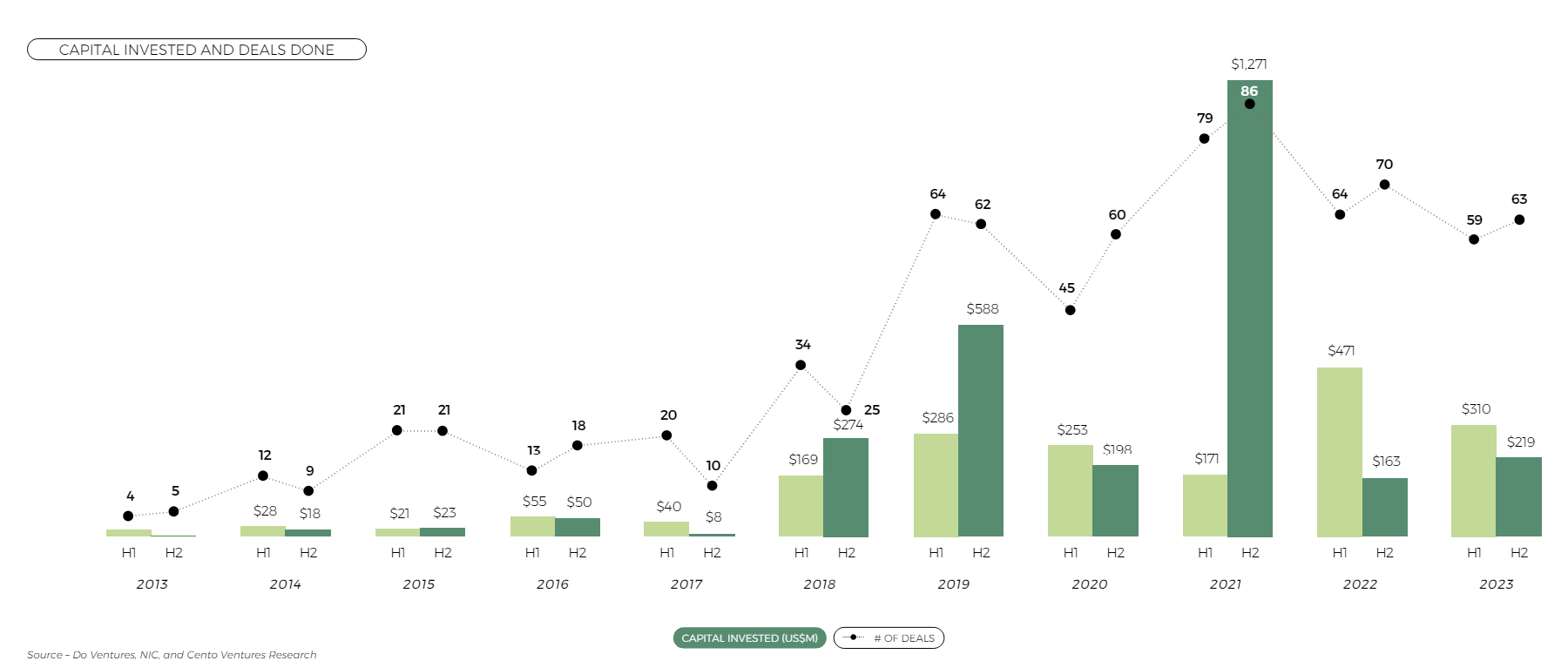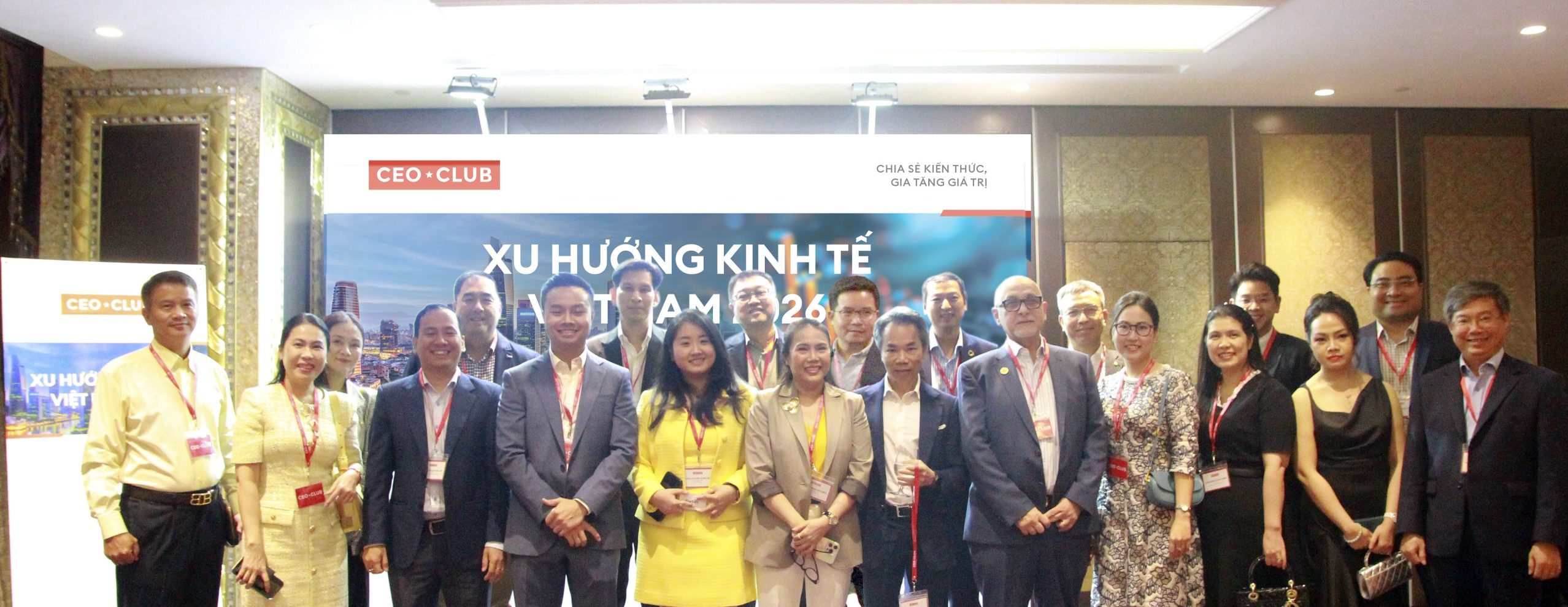Analysts share their insights regarding investment into edtech (education technology) startups in Vietnam during the opening months of 2024 and their thoughts on the future.

Mr. Rizwan Khan, Managing Partner, Acclime Vietnam
Vietnam’s edtech startups have become a beacon of success, drawing significant investment in early 2024 despite broader economic headwinds. The sector’s resilience is a testament to investor confidence in its long-term prospects, particularly as healthcare and education technologies continue to thrive. The Vietnamese Government’s robust support for e-learning initiatives has been pivotal, fostering an environment conducive to online education and digital resources. This governmental push aligns with a consumer shift towards personalized, interactive learning experiences.
Technological innovation is at the heart of Vietnam’s edtech evolution, with artificial intelligence (AI) and augmented reality (AR) driving a digital transformation that enriches learning through interactive and mobile solutions. These advancements are not only enhancing educational outcomes but also capturing investor interest.

Demographically, Vietnam’s youthful population, coupled with high rates of device ownership and internet connectivity, fuels demand for multimedia and efficient learning platforms that allow edtech startups to excel.
The market potential in the country is vast. Its online education sector has been valued at an estimated $3 billion, mirroring broader e-learning growth trends across Asia. Success stories like MindX, Teky, Vuihoc, Edupia, and Prep underscore the market’s vitality and investor trust. A burgeoning focus on STEAM (Science, Technology, Engineering, the Arts, and Mathematics) education reflects the sector’s promise and robust financial backing. Collectively, these elements position Vietnam’s edtech firms as attractive investment targets, even amid a funding slowdown for startups in general.
In Vietnam, edtech startups seeking additional investment need to demonstrate a nuanced understanding of the local education market, tailoring their products to address its unique challenges and meet the needs of students, parents, and educators. A sustainable business model is crucial, one that promises long-term profitability and can adapt to market dynamics. Leveraging government initiatives, such as tax incentives and support programs, can provide a significant boost. Technological innovation, particularly through the adoption of AI and AR, can make learning more interactive and effective, setting startups apart in the eyes of investors.
Establishing strategic partnerships with educational institutions can also offer valuable insights and open up access to potential customers. It is also important to provide evidence of a product’s positive impact on learning outcomes, with data on user engagement and academic improvement. Networking and maintaining a presence at edtech events can enhance visibility and investor connections. Scalability is key, as investors favor startups that show potential for growth.
Addressing the digital divide by making solutions accessible to all students, including those with limited technology access, can expand the market and demonstrate social responsibility. Sharing success stories and testimonials, meanwhile, can build credibility and trust with potential investors. By focusing on these strategies, Vietnamese edtech startups can better position themselves for investment and growth in a competitive market.
Vietnam’s edtech sector is poised for continued investment growth, buoyed by a 107 per cent increase in 2023 and substantial funding rounds, like NativeX, with $2.5 million, and Prep with $7 million. This trajectory is underpinned by the Vietnamese Government’s commitment to enhancing education quality through technology, fostering a supportive environment for edtech startups.
Despite challenges like the digital divide and content localization, these hurdles also offer opportunities for startups to devise innovative solutions, potentially drawing more investment. Compared to sectors like healthcare, edtech’s unique blend of government backing, market potential, and tech innovation positions it favorably for sustained investment attraction. In summary, the investment landscape for Vietnamese edtech startups is robust, likely outperforming other sectors due to its current momentum, supportive ecosystem, and alignment with national and global educational trends.

Ms. Mandy Nguyen, Operation Director, Startup Vietnam Foundation (SVF)
Investment sources in the edtech market in Vietnam are abundant and heavily supported by the government, making it one of the most dynamic edtech markets in Southeast Asia. This provides edtech startups in the country with a solid financial foundation and sufficient resources to develop products and services that meet market demand.
Vietnam’s young workforce in technology and related fields is abundant and serve as a recruitment pool for startups and innovative enterprises. Despite challenges, such as notable reductions in investment and significant socio-economic fluctuations, funds and individual investors are still seeking good deals and potential business models to invest in, especially given that education is a fundamental need in life. Many deals have succeeded, reaching record-high figures over the past decade despite the market’s gloomy signs.

In order to succeed and break through in any market, meticulous investment is required in all aspects, from personnel to operations. The edtech market in Vietnam is no exception as customer trends and preferences change daily, and macro-economic and global trends require businesses to adapt continuously to avoid being left behind on their long journey.
A core principle is always to focus on the product, delivering real value to customers. Concentrating on the user, continuously updating trends to ensure an uninterrupted experience, and leveraging technologies to enhance the quality of products and services is vital. An example is startups using AI to personalize learning pathways and student development through academic results, providing both teachers and students with tailored strategies to improve learning quality.
The Vietnamese Government is very attentive to digital transformation, especially in crucial fields like education, and has numerous supportive policies for startups in this area. Regularly updating information about support policies and seizing opportunities to participate in national enterprise support programs organized by various ministries and departments can shorten time, increase efficiency, and reduce costs for businesses. Examples include the Vietnam Innovation Challenge 2024 (VIC), organized by the Ministry of Planning and Investment (MPI) in collaboration with the National Innovation Center (NIC) and Meta, and Techfest Vietnam 2024, held by the Ministry of Science and Technology.
In regard to investment attraction for edtech startups compared to other sectors in the future, this is a challenging question given the absence of a strong economic recovery and the numerous social issues occurring globally. However, I believe that edtech startups with real potential and market-appropriate products in Vietnam will still receive a positive response from investors domestically and internationally.
According to the Vietnam Innovation & Tech Investment Report 2024 from NIC and Do Ventures, the country’s education sector received record-high capital of $67 million in 2023, accounting for 12.6 per cent of total investment in technology projects and a 107 per cent increase compared to 2022. Edtech has also become one of two bright spots in attracting tech investment in Vietnam, alongside health technology. This further emphasizes the market’s vast potential, making the sector one of the most attractive to investors.
Prioritized by investment funds due to market size and favorable timing, the edtech sector in Vietnam is poised to attract significant attention from investors in 2024 and beyond. However, investors will be much more cautious, so edtech startups need to work hard on their journey to conquering key milestones.
Mr. Binh Tran, General Partner, Ascend Vietnam Ventures (AVV)
The edtech market in Vietnam exhibits remarkable potential, driven by a youthful population, high internet penetration, a large proportion of household income being spent on education, and a strong governmental push towards digitization in education. Recent times have seen a surge in tech-savvy consumers and an increasing openness towards online learning platforms. This convergence of factors creates fertile ground for edtech startups to innovate and thrive. The resilience and rapid adaptation to online education during the pandemic also emphasizes the sector’s crucial role in Vietnam’s modern education framework.

Despite a general slowdown in venture capital activities, edtech startups in Vietnam continue to attract significant investments. This can be attributed to the sector’s resilience during economic downturns and its alignment with long-term educational reforms and technological advancements. During economic downturns, there is a noticeable shift towards investing in sectors that offer essential, recession-proof services.
Education is one such sector, and technology-driven solutions in this field are seen as investments in future-proofing education systems. Moreover, startups like NativeX and Prep indicate promising models that blend technology with practical learning solutions such as AI and live teaching, addressing immediate and scalable educational needs, which are highly appealing to investors looking for sustainable impact alongside financial returns.
To attract more funding, edtech startups in Vietnam should focus on demonstrating clear outcomes and scalability in their solutions. They should invest in AI that personalizes the learning experience and enhances user engagement. Developing unique content and proprietary technology that can be scaled across different regions and adapted to various educational needs will be crucial. Building robust data analytics capabilities to show tangible improvements in learning outcomes can also appeal to investors. Additionally, forging partnerships with educational institutions and aligning with governmental educational goals can enhance credibility and market reach.
The outlook for investment in Vietnam’s edtech sector appears promising compared to other sectors. The ongoing digital transformation in education, combined with Vietnam’s strategic focus on technology and innovation in its educational policies, positions edtech startups well for attracting future investments. As AI rapidly improves, startups that can deliver personalized learning at scale will attract more customers, helping the sector to remain a hotbed of innovation and investment.
Source: VnEconomy
18/06/2024


